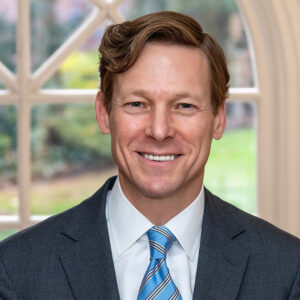University Administrative Structure
Since the University of North Carolina opened its doors in 1795, faculty have shared responsibility with a Board of Trustees for running the campus. Beginning with the consolidation of the University of North Carolina system in 1971, a Board of Governors has held overall responsibility for general management of the entire system.
The UNC Policy Manual
The UNC Policy Manual includes all policies governing the University of North Carolina system, including The Code of the Board of Governors of The University of North Carolina (known as “The UNC Code.”). The Code contains the full description of the university’s governing structure, outlined in brief below, as well as many policies related to academic freedom, faculty employment, and tenure (see especially Chapter VI).
President

Peter Hans is the seventh president of the University of North Carolina System. The System President, elected by the Board of Governors, is the chief administrative and executive officer of the UNC System. The President has complete authority to manage the affairs and execute the policies of the UNC System and its constituent institutions, subject to the direction and control of the Board of Governors. The President is charged with nominating chancellors for each of the UNC System’s universities for appointment by the Board of Governors.
The President and other senior administrative officers of the University of North Carolina system comprise the UNC General Administration. This core administrative staff is responsible for executing the policies of the UNC Board of Governors and providing University-wide leadership in the areas of academic affairs, business and financial management, long-range planning, student affairs, research, legal affairs and government relations.
The UNC General Administration also has administrative oversight of a number of University affiliates, including the UNC Health Care System, UNC-TV, the North Carolina Arboretum, the NC State Education Assistance Authority, the NC State Approving Agency, the UNC Press and the NC Center for International Understanding.
Board of Governors
The Board of Governors is the policy-making body legally charged with “the general determination, control, supervision, management and governance of all affairs of the constituent institutions” within the seventeen-university system. It elects the President, who administers the university system. The 32 voting members of the Board of Governors are elected by the North Carolina General Assembly for four-year terms. Special non-voting members have varying terms. Such members are former chairs of the board, former governors and the president of the UNC Association of Student Governments or that student’s designee.
Faculty Assembly
The UNC Faculty Assembly is the elected body of representatives of the faculty of the seventeen constituent institutions of the University of North Carolina. The Assembly is dedicated to upholding and exercising the principles of academic freedom, shared governance, tenure and the faculty’s primary responsibility for the University’s curriculum.
Board of Trustees
The UNC-Chapel Hill Board of Trustees promotes “the sound development of UNC-Chapel Hill within the functions prescribed for it, helping it to serve the people of the state in a way that will complement the activities of the other institutions and aiding it to perform at a high level of excellence in every area of endeavor. Each constituent university’s board of trustees serves as an advisor to the Board of Governors on matters pertaining to its respective university and serves as advisor to its university’s Chancellor concerning the management and development of the institution.” The Board of Trustees is composed of thirteen people: eight are elected by the UNC Board of Governors, four are appointed by the governor, and the president of the student government is an ex officio member.
Chancellor

Each constituent institution of the UNC system is headed by a chancellor, whose duties are outlined in Section 502 of the Code of the Board of Governors. The Chancellor is vested with complete executive authority, subject to the direction of the President of the UNC System. The Chancellor is responsible for carrying out policies of two governing boards: the UNC System’s Board of Governors and the University’s Board of Trustees. The Chancellor also makes recommendations to the president regarding academic program development, personnel matters (subject to policies of the Governors and Trustees), and budget development. The Chancellor maintains wide discretion in decision-making with regard to student affairs (subject to policies of the governing boards) and other aspects of the administration of the University, as provided under the General Statutes of North Carolina and the UNC Code.
Past Presidents and Chancellors of UNC-Chapel Hill
Office of the Chancellor Organizational Chart
Provost

The Provost is the Chief Academic Officer of the University of North Carolina at Chapel Hill and has oversight responsibilities for budget and planning.
The Roles and Responsibilities of the Provost’s Office gives a full account of the Provost’s duties, which include leading the University in its academic planning and in the setting of academic values, policies, and practices; guiding and evaluating the deans of each school and selected vice chancellors and senior administrators (in concert with the Chancellor); chairing the University’s Budget Committee; making major resource allocation decisions relative to state funding and overhead funds; preparing budget requests for academic and capital projects that are forwarded to UNC General Administration for review and approval; providing oversight and assigning budgets to the dean of each school and the directors of university centers and institutes; and co-chairing the Tuition and Fees Advisory Task Force, which develops proposals for tuition and fees for the following fiscal year.
The Provost recommends and approves all promotions, retentions, special hires, tenure decisions, and new appointments to the faculty, and helps schools establish their own promotion and tenure policies. The Provost also has responsibility for fostering globalization initiatives, guiding development of information technology infrastructure, and overseeing conduct of research, scholarship, admissions, financial aid, educational offerings and educational policies and practices.
Office of the Provost Organizational Chart
Centers and Institutes
The university houses many centers and institutes that sponsor interdisciplinary collaboration or focus on particular issues. Centers are administered through the Provost’s Office, Office of the Vice Chancellor for Research, or housed within the schools.
University Facts and Figures
The university’s Office of Institutional Research and Assessment (OIRA) provides data and other types of information about the University of North Carolina at Chapel Hill to support institutional decision making and achievement of our vision of becoming the nation’s leading public university. In addition, the OIRA site provides a variety of descriptive information about the University for use by our many constituents and the general public. Here you will find, for instance, basic demographic data about the faculty.

